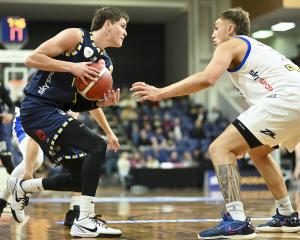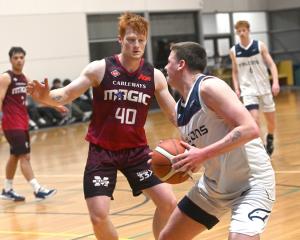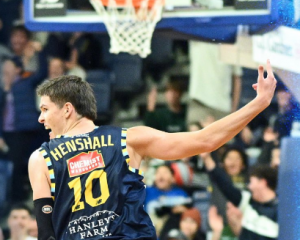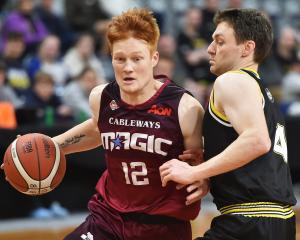After entering the Tarkanian Classic with a 9-2 record, they finished with a five-match losing streak in the elite prep division of one of the world's top school competitions.
Head coach Mark Dickel said the team fought well in each of these matches and were in with a chance in each game going into the final five minutes. Against Diego Prep from California they fell just four points short, while finishing within six of what he described as a "tall" Urspring team from Germany.
Dickel stated that the division they played in was tougher than the high school division, which allowed them to test themselves against better opposition.
"In the Tarkanian Tournament we played in the elite Prep division. This was a great opportunity to test ourselves against Prep Schools which have bigger and more talented players than in the high school division," he said.
"The thought process behind the tougher division was to test our players against the best, development focus, over results."
He added that all of their games at the tournament were played in front of numerous college coaches, one of which included two-time NCAA National Championship winner Rick Pitino. Earlier he had remarked that nine of the players have had interest from college scouts, including Division I looks for Joe Cook-Green, Jackson Stent and Shou Nisbet.
The tour had been an opportunity for these players to not only get exposure, but to gain a better feel for the level they needed to be at to make their college dreams a reality. Dickel remarked that they "now know the level they must get to" and "know how hard [they] must work to get there."
If these boys could reach this level it would be a huge boost for South Island and Otago basketball. Having more high level players will help boost the profile of the region within the sport and it may become a more common recruiting ground for college coaches.
In the long-term this will be hugely beneficial to basketball in the region. While it may seem counter-intuitive to have the best young talent leaving the area, the hope is that they return as far more polished and talented players. This gives the Nuggets time to regroup and become financially viable, so there is a team for these boys to play for after finishing college.
The team's success in the US came via playing a high-tempo in game, applying pressure on defence and excelling in transition. By doing this they were able to unsettle their bigger opponents, wearing them down and making use of their high fitness and skill levels.
Assistant coach Greg Brockbank made similar comments, suggesting that while the team gave up size and athleticism, they were superior to most of the American teams in their skill level and intensity.
Dickel praised the others to have coached these boys as well, stating that it was them who allowed them to stick together and keep fighting.
"The way the team stuck together and fought in each game is in large part due to the coaching that each player has received in their own high schools," he said.
"The coaches there all deserve recognition for how hard these kids play. The players in Dunedin benefiting from Greg Brockbank and Dean Ruske at the BBO Academy and Gavin Briggs at Otago Boys High School, in Oamaru, Brendan Polyblank at St Kevin's and in Christchurch Caleb Harrison at the CBA Academy, Joe Hammond at Burnside High and Paul Isitt at Papanui High School."
He also extended gratitude to managers Jackie Hibbard, Judy Robertson and Carl Stent.
The team now returns home, while their women's equivalent will fly out of New Zealand on December 29 and remain in the US until January 13.
Dickel said that it has been an exciting couple of weeks and is already looking ahead to next year's tour. He sees there being plenty of talent to choose from and said those wishing to tour would have to get to work now, as 11 months was a short time to improve.










